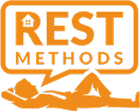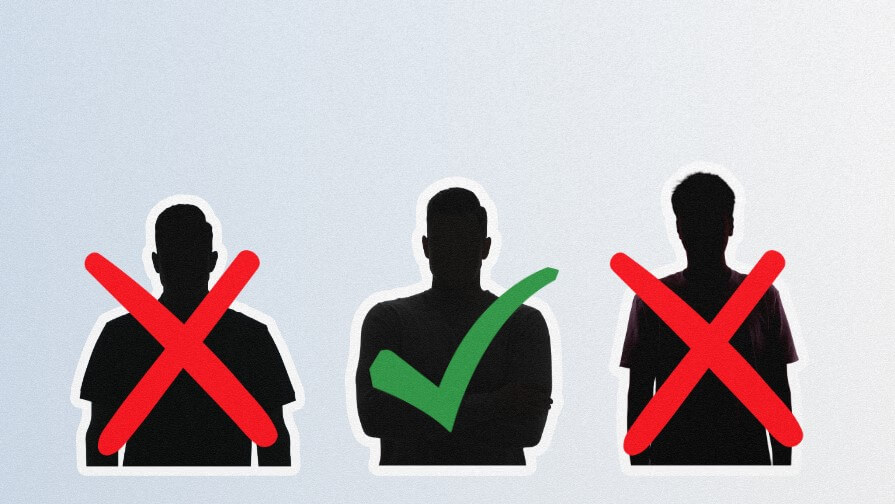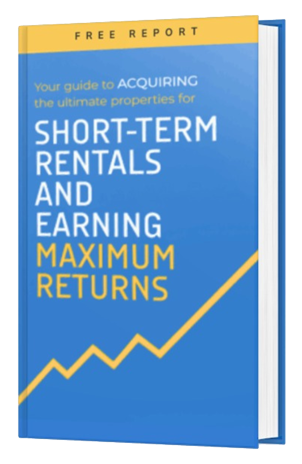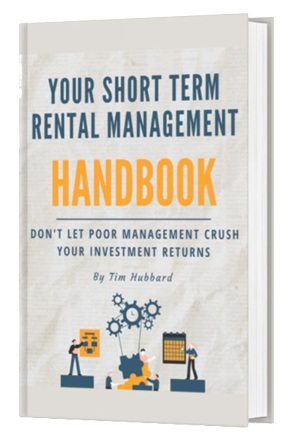When it comes to real estate, one of the most crucial decisions you’ll make is choosing the right realtor. This professional will guide you through the intricate process of buying or selling a property, ensuring that you get the best deal possible.
Why choosing the right realtor matters
Choosing the right realtor is not just about finding someone to show you houses or list your property. It’s about finding a partner, an advocate, and an expert who can navigate the complexities of the real estate market on your behalf.
The right realtor will be your ally, working diligently to meet your needs and secure the best possible outcome for you.
The right realtor can make your property journey smooth and efficient. They can negotiate better deals, provide insights into the local market, and offer valuable advice at every step.
They will also help you avoid common pitfalls and guide you through the legal and financial aspects of the transaction, ensuring that you are fully informed and comfortable with every decision you make.
Key Qualities to Look for in a Realtor
Experience and expertise
While every realtor starts somewhere, experience can be a significant advantage. An experienced realtor has seen various market conditions and knows how to handle different situations. They have a wealth of knowledge and a network of contacts that can be invaluable in finding the right property or the right buyer.
When evaluating a realtor’s experience, consider not just the number of years they have been in the business, but also the types of transactions they have handled and their success rate.
Local market knowledge
Understanding the local market is crucial. A realtor with local expertise can provide insights into neighborhood trends, property values, and potential growth areas. They can help you find the right property in the right location, ensuring that you are making a sound investment.
Local knowledge is also essential when selling a property, as it allows the realtor to accurately price the property and market it effectively to potential buyers.
If you’re looking at a new market and you found someone to work with that’s an expert they can help you with all kinds of little things that maybe you wouldn’t have known. For example, is the soil in that particular area known for settling? Or is it in a flood zone?
Tim Hubbard
Communication skills
Clear and timely communication is essential. Your realtor should keep you informed throughout the process, answering your questions and addressing your concerns.
They should be available when you need them and should provide regular updates on the progress of your transaction.
Good communication is the foundation of a strong realtor-client relationship, and it is vital to ensuring that you are satisfied with the service you receive.
Client reviews and testimonials
Don’t be afraid to ask for reviews. Past clients’ experiences can give you a glimpse into how the realtor operates. So, look for reviews and testimonials to gauge their reputation.
Positive reviews are a good sign that the realtor is reliable, professional, and effective. You can also ask the realtor for references and speak to past clients directly to get a better understanding of their experience.
The Process of Choosing the Right Realtor
1. Researching potential realtors
The first step in finding the right realtor is to conduct thorough research.
As we mentioned previously, start by asking for recommendations from friends and family who have recently bought or sold a property in your area. Their firsthand experiences can provide valuable insights and help you identify potential realtors who have a proven track record of success.
Remember, if you’re looking for an investment property, and not a personal property, then it’s highly recommended to look for a realtor that specializes in investments. They’re going to make sure they only bring you deals that they know meet your investment criteria and that make sense.
In addition to personal recommendations, online platforms can be a valuable resource such as Zillow, Realtor.com, and Trulia can be a valuable resource. These websites provide lists of realtors in your area, complete with reviews and ratings from past clients.
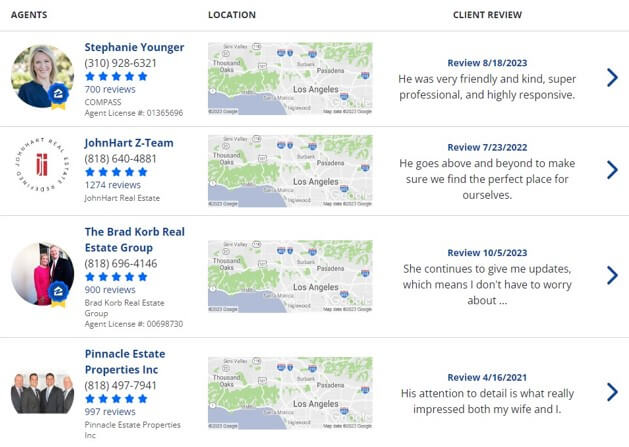
This can give you a sense of the realtor’s reputation and the experiences of other clients. Look for realtors with positive reviews and high ratings, as this is a good indication that they are reliable and effective.
2. Interviewing your top choices
Once you have a list of potential realtors, the next step is to set up interviews. This will give you a chance to meet the realtor in person and gauge their expertise, communication style, and approach.
If you’re looking to purchase a property remotely, then a virtual interview is fine too.
During the interview, ask about their experience, the types of transactions they have handled, and their success rate. You should also ask about their knowledge of the local market and their approach to finding or selling properties.
Pay attention to how the realtor communicates and whether they take the time to understand your needs. A good realtor will ask you questions and listen carefully to your answers, ensuring that they have a clear understanding of your goals and preferences.
Questions to ask when choosing a realtor
- How long have you been in the real estate business?
Experience can be a significant advantage in real estate. - What is your experience with the local market?
Local knowledge is crucial for understanding neighborhood trends and property values. - Do you work with clients only looking for investments?
This question helps you gauge if the realtor has the expertise to cater to your specific investment needs. Some realtors specialize in residential properties, while others might be more focused on investment properties. - Do you yourself invest in real estate?
Asking this can give you insights into the realtor’s personal experience and investment strategies. A realtor who invests personally may have a deeper understanding of what makes a property a good investment. - How many clients are you currently working with?
This will give you an idea of how much time the realtor can dedicate to you. - Can you provide references from past clients?
Past clients’ experiences can provide valuable insights into the realtor’s professionalism and effectiveness. - What is your approach to finding or selling properties?
This will help you understand the realtor’s strategy and whether it aligns with your needs. - How do you handle negotiations?
A good realtor can negotiate better deals on your behalf. - What are your communication preferences?
Clear and timely communication is essential in any real estate transaction. - (If you are selling your property): What are the terms of your contract?
Understanding the terms of your agreement is essential before signing. - What are your fees or commission rates?
Commissions can be negotiable, and it’s important to understand the costs involved. - What sets you apart from other realtors?
This will give the realtor an opportunity to highlight their unique qualities and strengths. - What is your strategy for my needs?
Understand how the realtor plans to meet your specific needs and goals. - How will you keep me informed?
Discuss the frequency and method of updates and communication. - Can you provide a CMA (Comparative Market Analysis)?
A CMA will help you understand the value of your property in the current market. - What happens if I’m unhappy with your service?
Discuss the process for addressing any issues or concerns that may arise. - How do you handle multiple offers?
Understand the realtor’s strategy for handling situations where there are multiple offers on a property. - What is your availability?
Make sure the realtor is available when you need them, especially if you have a tight timeline.
Red Flags to Watch Out For
Too good to be true promises
When a realtor promises a quick sale at a high price without any data to back it up, it’s a red flag. Unrealistic promises can lead to disappointment and frustration. A good realtor should provide you with a realistic assessment of your property’s value based on current market conditions and comparable sales in your area.
Lack of communication
Effective communication is crucial in any real estate transaction. If a realtor is hard to reach or doesn’t communicate regularly, it might be a sign that they are not fully committed to your success.
A good realtor should keep you informed throughout the process and be available to answer your questions and address your concerns.
Not listening to your needs
Your realtor should prioritize your needs and preferences. If they are pushing properties that don’t align with what you want or need, it might be time to reconsider. A good realtor will take the time to understand your goals and work with you to find the right property that meets your needs.
Making the Final Decision
After all the research and interviews, trust your gut feeling. If you feel comfortable and confident with a realtor, they might be the right choice for you. Pay attention to how the realtor makes you feel and whether they are genuinely interested in helping you achieve your real estate goals.
Remember, choosing the right realtor is about building a long-term relationship. This person will be by your side through one of the most significant financial decisions of your life. A good realtor will provide you with valuable advice and support throughout the process, helping you make informed decisions and achieve the best possible outcome.
My experience with a Realtor in Property Investment
When I was in the U.S., I had the opportunity to explore the real estate market in San Antonio, Texas. Texas has been recognized as one of the best opportunities for real estate investment in the U.S., with a significant influx of people moving to the state. San Antonio, in particular, is a city with great potential, offering value and proximity to Austin.
During my visit, I was interested in an apartment building listed on the open market. I had set up alerts for listings that met my criteria and inquired about this particular property within an hour of it being listed.
However, the agent I was referred to, while possibly skilled in residential sales, lacked the necessary expertise in multi-family properties.
As a former broker who specialized in commercial real estate, I can attest to the differences between residential and commercial sales. The knowledge and expertise required for each are distinct, and it’s crucial to work with a realtor who understands the specific nuances of the property type you’re interested in.
We mentioned it before, but we’ll mention it again: when looking for the right realtor or broker, start by asking for referrals from friends, family, or fellow investors. If you don’t have any referrals, you can find potential contacts on open listings or by calling listing agents directly.
It’s important to interview them and ask questions to gauge their familiarity with the local market and investment properties. Building a relationship with a realtor remotely is possible, and it becomes easier as you work together on more properties.
In my case, the agent I met with in San Antonio was likely a good agent, but not for the 10-unit apartment building I was interested in. There were discrepancies in the listing, such as the number of units, which could have been clarified beforehand had I done more due diligence on the agent.
Download The 16 Page Guide to Acquiring The Right Property For STR Returns
The type of property and its location can make or break your investment.
Don’t “bet the house” on the wrong property.
Find out how to determine the right markets and properties for better, safer returns…


Final Thoughts and Recommendations
One of the most effective ways to find a competent realtor is through referrals. Whether from family, friends, or fellow investors, a recommendation can provide a level of trust and assurance in the realtor’s capabilities.
So, before going on a property tour or making an investment decision, it’s very important to do your homework. This includes vetting potential realtors, understanding the local market, and being clear about your investment criteria. Choosing the right realtor is a decision that requires careful consideration and due diligence.
FAQs
The length of time you spend interviewing potential realtors depends on your specific needs and the complexity of your real estate transaction. However, it’s essential to interview at least 2-3 realtors to get a good comparison. This will allow you to gauge their experience, expertise, and communication style, helping you make an informed decision.
No, while there is an industry standard for real estate commissions, they can be negotiable. It’s essential to discuss the commission rate with your realtor before signing any agreement. Keep in mind that the commission is typically split between the buyer’s and seller’s agents.
Most states have online databases where you can check the status of a real estate professional’s license. You can usually find this information on the website of your state’s real estate commission or department of licensing. It’s essential to verify that the realtor’s license is active and in good standing before proceeding with any transaction.
A high number of listings can indicate that a realtor is experienced and successful. However, it’s also essential to ensure that they have enough time and resources to dedicate to your property. During the interview process, ask the realtor how they manage their workload and ensure that each client receives the attention they deserve.
Yes, you can end your contract with a realtor if you’re not satisfied with their services. However, it’s essential to understand the terms of your agreement before signing. Some contracts may have specific conditions or penalties for terminating the agreement early. Be sure to discuss this with your realtor and have a clear understanding of the process before proceeding.
